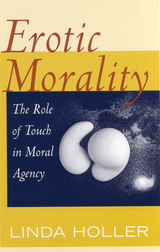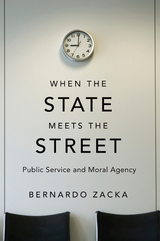

By examining how narrative strategies reinforce or contest deterministic paradigms, this work describes modern Chinese fiction's unique contribution to ethical and literary debates over the possibility for meaningful moral action. How does Chinese fiction express the desire for freedom as well as fears of attendant responsibilities and abuses? How does it depict struggles for and against freedom? How do the texts allow for or deny the possibility of freedom and agency? By analyzing discourses of agency and fatalism and the ethical import of narrative structures, the author explores how representations of determinism and moral responsibility changed over the twentieth century. She links these changes to representations of time and to enduring commitments to human-heartedness and social justice.
Although Chinese fiction may contain some of the most disconsolate pages in the twentieth century's long literature of disenchantment, it also bespeaks, Knight argues, a passion for freedom and moral responsibility. Responding to ongoing conflicts between the claims of modernity and the resources of past traditions, these stories and novels are often dominated by challenges to human agency. Yet read with sensitivity to traditional Chinese conceptions of moral experience, their testimony to both the promises of freedom and the failure of such promises opens new perspectives on moral agency.

When the State Meets the Street probes the complex moral lives of street-level bureaucrats: the frontline social and welfare workers, police officers, and educators who represent government’s human face to ordinary citizens. Too often dismissed as soulless operators, these workers wield a significant margin of discretion and make decisions that profoundly affect people’s lives. Combining insights from political theory with his own ethnographic fieldwork as a receptionist in an urban antipoverty agency, Bernardo Zacka shows us firsthand the predicament in which these public servants are entangled.
Public policy consists of rules and regulations, but its implementation depends on how street-level bureaucrats interpret them and exercise discretionary judgment. These workers are expected to act as sensible moral agents in a working environment that is notoriously challenging and that conspires against them. Confronted by the pressures of everyday work, they often and unknowingly settle for one of several reductive conceptions of their responsibilities, each by itself pathological in the face of a complex, messy reality. Zacka examines the factors that contribute to this erosion of moral sensibility and what it takes to remain a balanced moral agent in such difficult conditions.
Zacka’s revisionary portrait reveals bureaucratic life as more fluid and ethically fraught than most citizens realize. It invites us to approach the political theory of the democratic state from the bottom-up, thinking not just about what policies the state should adopt but also about how it ought to interact with citizens when implementing these policies.
READERS
Browse our collection.
PUBLISHERS
See BiblioVault's publisher services.
STUDENT SERVICES
Files for college accessibility offices.
UChicago Accessibility Resources
home | accessibility | search | about | contact us
BiblioVault ® 2001 - 2024
The University of Chicago Press









